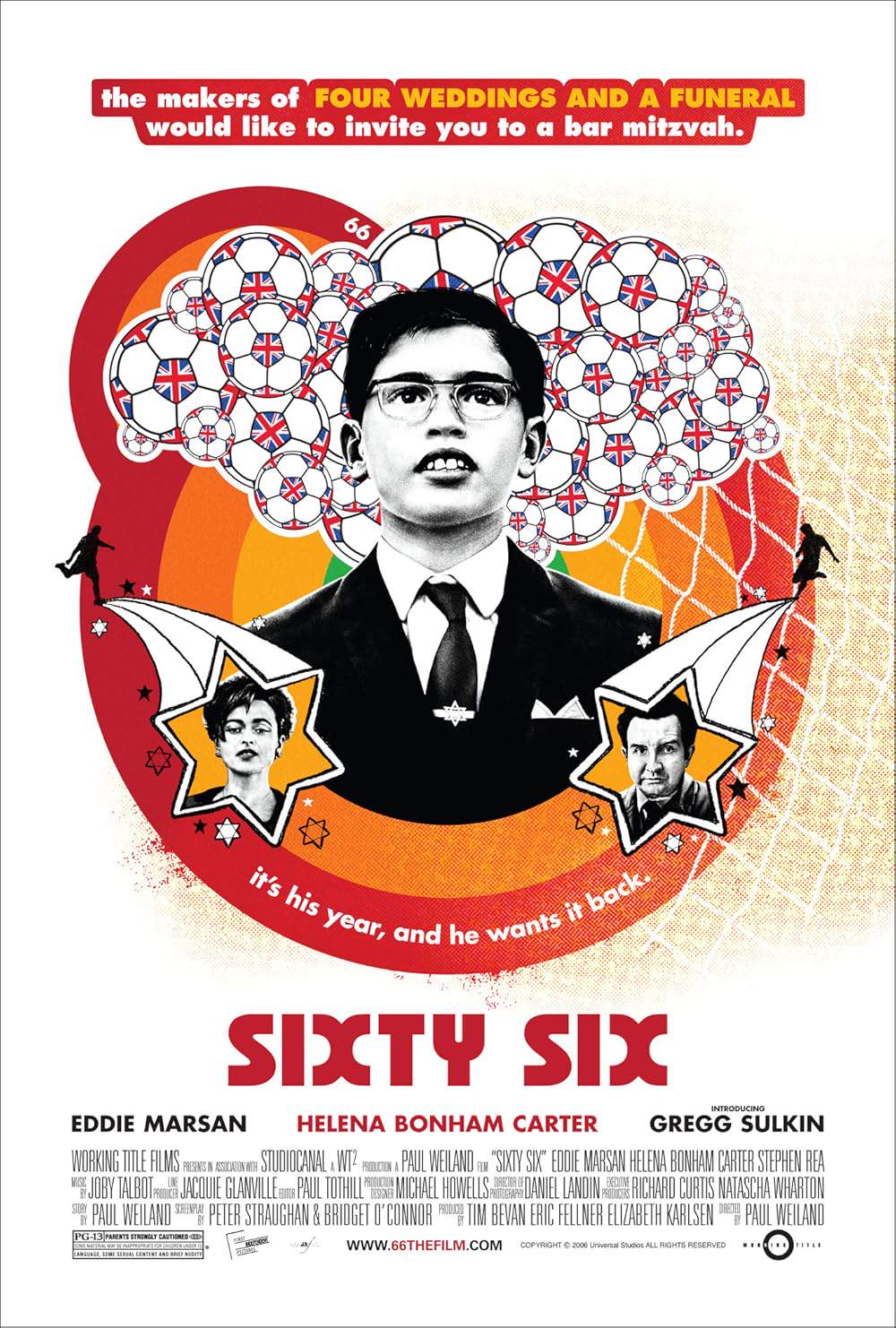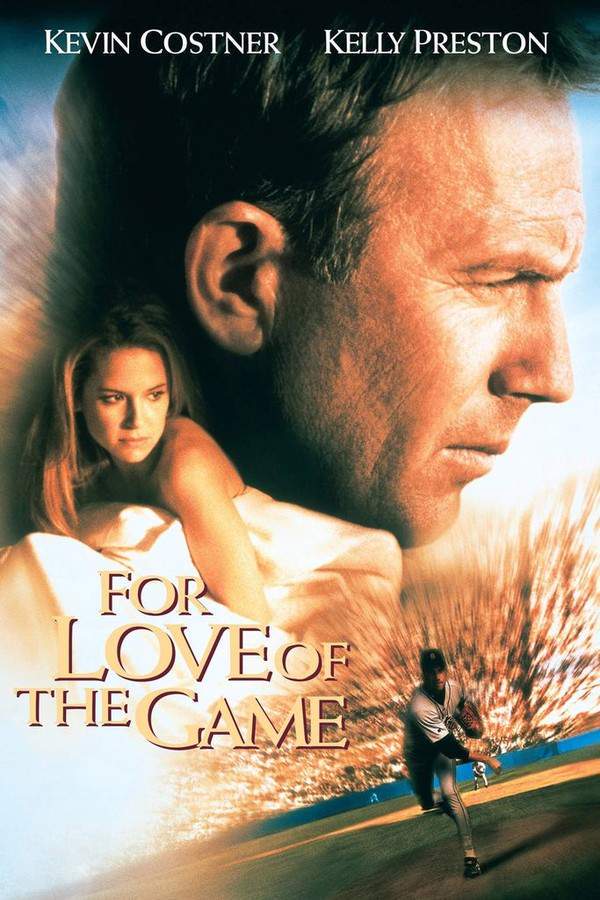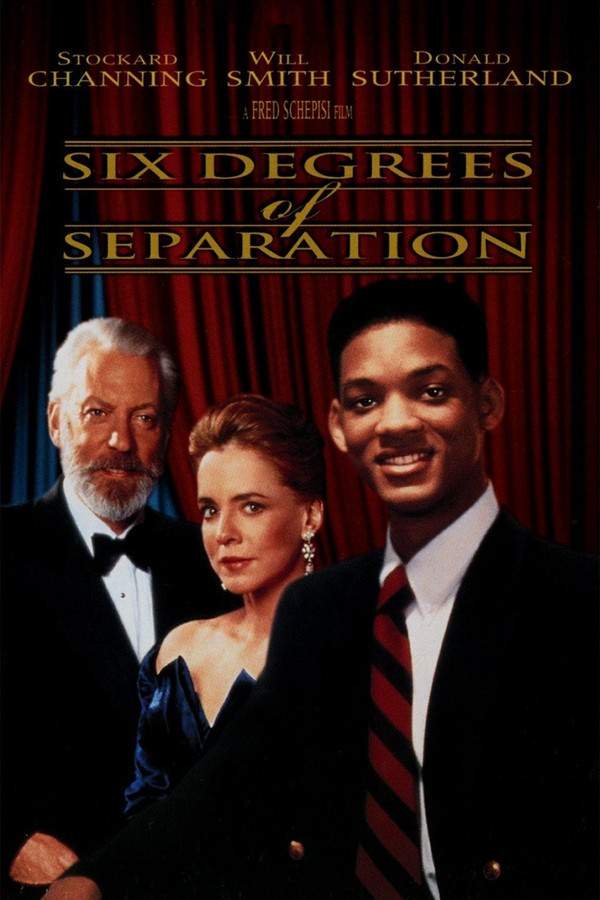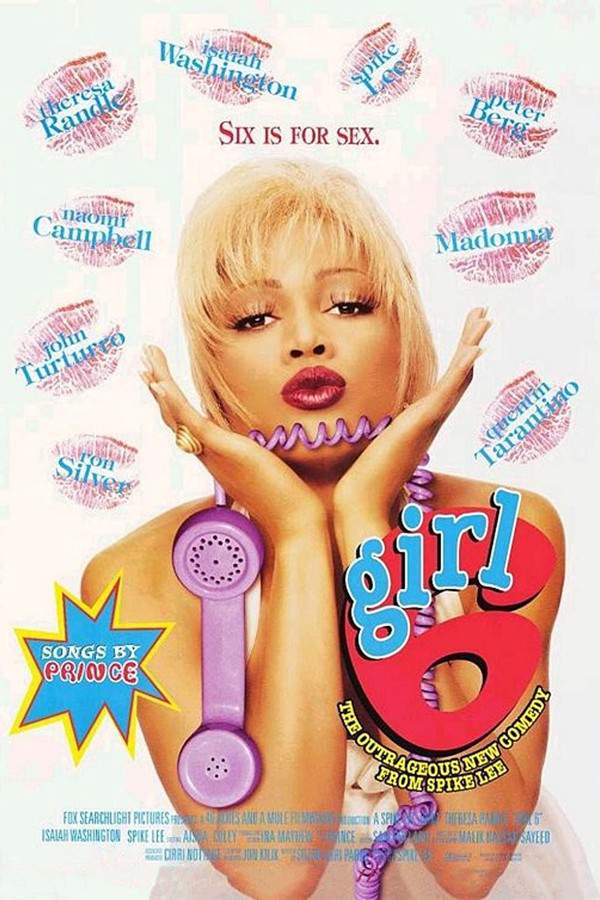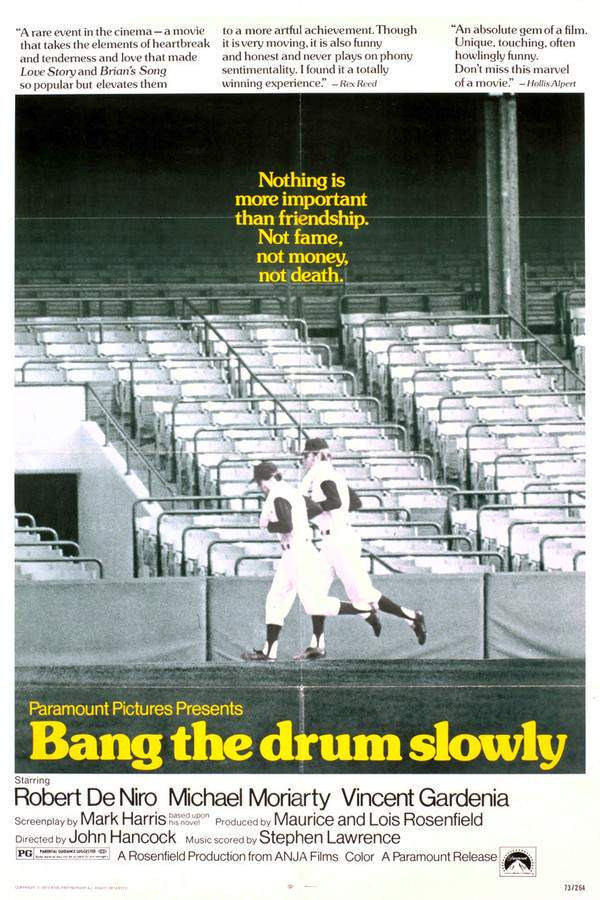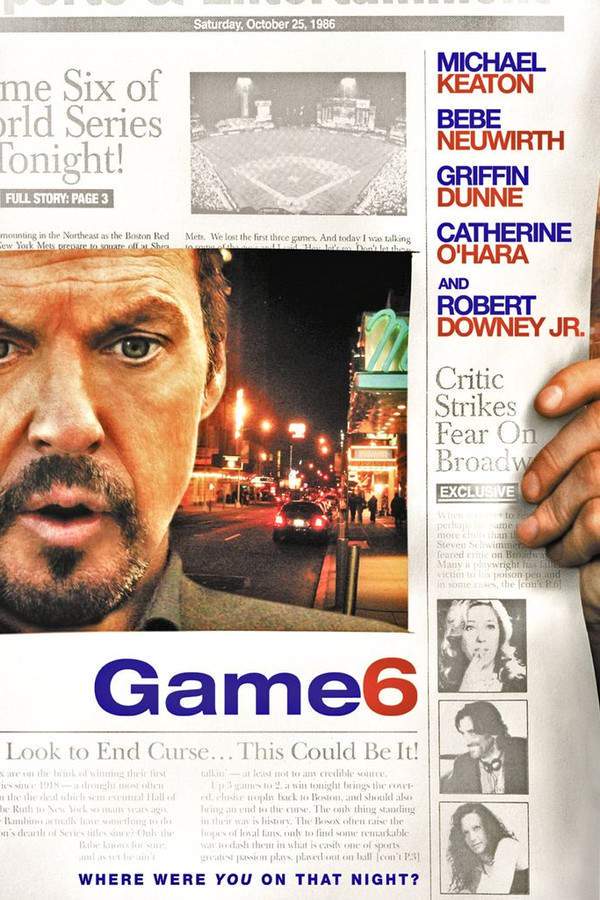
Game 6 2006
Directed by

Michael Hoffman
Made by

Gravitas Ventures
Test your knowledge of Game 6 with our quiz!
Game 6 Plot Summary
Read the complete plot summary and ending explained for Game 6 (2006). From turning points to emotional moments, uncover what really happened and why it matters.
Nicky Rogan, a successful playwright known for his multiple successful works, finds himself in turmoil on the opening night of his latest play. With everyone around him, including his friends, convinced that this will be his best production yet, doubts and fears begin to creep in. These insecurities are fueled by a rival playwright whose previous work was severely panned by the local newspaper’s strident drama critic, Steven Schwimmer. As the hour approaches, Nicky’s anxiety escalates to a terrifying resolve—he intends to eliminate the critic, convinced that his play will suffer the same fate.
Instead of being at the theater, Nicky opts for a local bar, finding unexpected company in a friendly cab driver and her grandson. Earlier that evening, she amusingly mistook him for a small-time gangster, a mistake he does not bother to correct. As they share the night, they fixate on the pivotal Game 6 of the 1986 World Series, where the Boston Red Sox, Nicky’s beloved team, are on the brink of clinching the championship against the New York Mets. Throughout the game, even as the Sox lead, Nicky wrestles with a deep-seated fear of loss, one he knows all too well as a dedicated fan.
When the infamous moment arrives—the catastrophic errors leading to the heartbreaking loss for the Sox—Nicky reaches his breaking point. Fueled by rage and disappointment, he abandons his companions and heads out on a mission to confront his would-be nemesis. In a twist of fate, Nicky discovers not only the critic but also witnesses him in an intimate moment with his own daughter. In a chaotic storm of emotions, Nicky pulls out his weapon, only to find unexpected camaraderie with Steven Schwimmer as they share in the misery of the Sox’s defeat. Ultimately, they find solace in each other, huddled together in the critic’s apartment as they endure a seemingly endless rerun of the devastating Bill Buckner error, forever entwined by the night’s events.
Game 6 Timeline
Follow the complete movie timeline of Game 6 (2006) with every major event in chronological order. Great for understanding complex plots and story progression.
Opening Night Dread
Nicky Rogan, a renowned playwright, faces the opening night of his latest production with mounting anxiety. Despite friends and supporters believing this will be his finest work, Nicky's confidence wanes as doubts and fears flood his mind.
Rivalry with the Critic
Nicky's insecurities are aggravated by the presence of his rival playwright, whose recent work was harshly critiqued by the local drama critic. The anticipation of a similar fate for his play intensifies Nicky’s internal conflict.
Decision to Avoid the Theater
As the anxiety peaks, Nicky makes the impulsive choice to skip the theater entirely. Instead, he finds himself in a nearby bar, seeking distraction and connection with strangers.
Unexpected Company
At the bar, Nicky bonds with a friendly cab driver and her grandson. Their amusing misunderstanding of Nicky's identity sparks a moment of levity, providing him a temporary escape from his mounting fears.
Game 6 of the 1986 World Series
The attention shifts to the pivotal Game 6 of the 1986 World Series, where the Boston Red Sox, Nicky's favorite team, are playing against the New York Mets. As the game progresses, Nicky’s anxiety intertwines with the game’s tension.
Hope Turns to Fear
As the game nears its conclusion, the Red Sox appear to be on the verge of clinching the championship. Yet, Nicky grapples with a profound fear of loss, a familiar sentiment he had endured as a dedicated Sox fan.
The Heartbreaking Loss
The game takes a dramatic turn when catastrophic errors lead to the Red Sox's unexpected defeat. This moment serves as a personal crisis for Nicky, heightening his feelings of despair and frustration.
A Mission for Confrontation
Overcome by rage and disappointment, Nicky abandons his newfound friends and resolves to confront the critic, whom he blames for his mounting anxiety. This marks a pivotal moment in his emotional journey.
Confrontation with the Critic
Nicky unexpectedly encounters the critic while witnessing an intimate moment between him and his daughter. This chaotic encounter stirs a whirlwind of emotions within Nicky as he grapples with his initial intentions.
Unexpected Camaraderie
In a twist of fate, instead of violence, Nicky finds himself bonding with the critic over their shared misery regarding the Sox's defeat. This unexpected connection brings a complex resolution to Nicky's tumultuous evening.
Facing Shared Grief
Together, Nicky and the critic huddle in the critic's apartment, reminiscing about the game and the agonizing Bill Buckner error. As they reflect on their shared disappointments, they forge an unlikely alliance born from mutual anguish.
Dealing with Frustration
As they replay the game highlights, Nicky comes to terms with his feelings of anger and frustration. He begins to realize that life's defeats are a part of human experience, both personally and in art.
Reflection and Acceptance
The night eventually transitions into early morning, and with the ongoing reruns of the Sox's defeat, Nicky slowly finds acceptance. The experience forces him to reconsider his worries about public perception and criticism.
End of a Turbulent Night
As the night concludes, Nicky's chaotic journey leads him to a place of unexpected introspection. Through the lens of his struggles with both personal and professional fears, he emerges with a new perspective on life and art.
Game 6 Characters
Explore all characters from Game 6 (2006). Get detailed profiles with their roles, arcs, and key relationships explained.
Nicky Rogan (Robert Downey Jr.)
Nicky Rogan is a complex character, portrayed as a successful yet anxious playwright battling his insecurities on the opening night of his latest play. His character arc reflects a deep fear of failure, which leads him to contemplate drastic actions. Despite his flaws, his vulnerability and passion for both theater and baseball create a relatable narrative.
Steven Schwimmer (Michael Keaton)
Steven Schwimmer is the rival playwright whose previous work has been criticized, representing the external pressure Nicky feels. Though initially seen as an adversary, his character reveals depth and a shared vulnerability in response to the night’s events. He embodies the unexpected twists of rivalry turning into camaraderie.
Game 6 Settings
Learn where and when Game 6 (2006) takes place. Explore the film’s settings, era, and how they shape the narrative.
Time period
1986
The movie takes place during a pivotal moment in 1986, particularly revolving around the infamous Game 6 of the World Series. This time was marked by a significant event in baseball history that affected many fans, stirring deep-rooted emotions and memories. The atmosphere was charged with excitement and disappointment, reflecting a broader cultural backdrop of passion for sports.
Location
Local Bar, Theater
The local bar serves as a refuge for Nicky Rogan, providing a setting for unexpected connections amidst his turmoil. It's a typical gathering spot in the city, where patrons share stories, laughter, and live sports. The theater represents the world of performing arts where Nicky's latest play is set to premiere, symbolizing his career's highs and lows.
Game 6 Themes
Discover the main themes in Game 6 (2006). Analyze the deeper meanings, emotional layers, and social commentary behind the film.
🎭
Ambition
Nicky's ambition drives the narrative as he navigates the pressures of being a successful playwright. His determination to create a masterpiece contrasts sharply with his insecurities and the fear of failure. The theme of ambition is intricately woven into his relationships and decisions, particularly in the face of rivalry.
⚾
Loss
The theme of loss permeates the film, not only in the context of the baseball game but also in Nicky's personal and professional life. As he grapples with the heartbreak of the Red Sox's defeat, it serves as a metaphor for his own fear of inadequacy and failure. This emotional resonance connects with the audience through the universal experience of loss.
💔
Fellowship
In moments of despair, Nicky discovers an unexpected sense of fellowship with his rival, Steven Schwimmer. Their shared experience of heartbreak over the game fosters a bond that transcends competition. This theme highlights the importance of human connection in times of crisis, offering solace amidst turmoil.

Coming soon on iOS and Android
The Plot Explained Mobile App
From blockbusters to hidden gems — dive into movie stories anytime, anywhere. Save your favorites, discover plots faster, and never miss a twist again.
Sign up to be the first to know when we launch. Your email stays private — always.
Game 6 Spoiler-Free Summary
Discover the spoiler-free summary of Game 6 (2006). Get a concise overview without any spoilers.
In the summer of 1986, the city thrums with a restless energy that mirrors the nerves of its most celebrated playwright, Nicky Rogan. Having earned a reputation for razor‑sharp dialogue and soaring ambition, he stands on the brink of what everyone assumes will be his magnum opus. Yet the specter of a looming critique gnaws at his confidence, turning the opening night into a high‑wire act where ego and insecurity compete for dominance.
The world outside the theater offers a counterpoint of ordinary Americana, anchored by the fevered chase of the Boston Red Sox’s World Series showdown. Baseball becomes more than a pastime; it is a cultural heartbeat that syncs with Nicky’s own hopes and doubts. As the game stretches toward its decisive moment, the city’s streets fill with barroom conversations, neon signs flickering like the fleeting certainty of a well‑timed line.
Amidst this pressure cooker, a looming figure holds the power to shape Nicky’s future: the notoriously blunt drama critic, Steven Schwimmer. Their indirect rivalry fuels the playwright’s imagination, casting the critic as both an adversary and an unseen barometer of artistic worth. The tension between creator and evaluator sets the stage for a nocturnal journey that blurs the line between performance and lived experience.
The film balances a subtle, wry humor with a palpable undercurrent of anxiety, inviting viewers to linger in the liminal space where personal obsession meets public spectacle. It asks what it means to chase greatness when the world’s attention is divided between a theater curtain and a baseball diamond, and whether redemption can be found in the most unexpected of shared silences.
Can’t find your movie? Request a summary here.
Movies with Similar Twists and Themes
Uncover films that echo the narrative beats, emotional arcs, or dramatic twists of the one you're exploring. These recommendations are handpicked based on story depth, thematic resonance, and spoiler-worthy moments — perfect for fans who crave more of the same intrigue.
Featured on this page

What's After the Movie?
Not sure whether to stay after the credits? Find out!
Explore Our Movie Platform
New Movie Releases (2026)
Famous Movie Actors
Top Film Production Studios
Movie Plot Summaries & Endings
Major Movie Awards & Winners
Best Concert Films & Music Documentaries
Movie Collections and Curated Lists
© 2026 What's After the Movie. All rights reserved.


